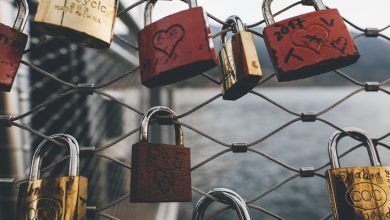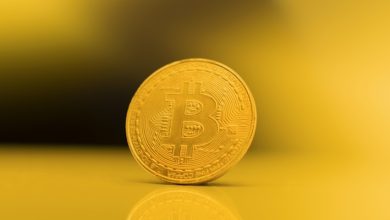The Future of NFT Regulation: What’s on the Horizon

- Understanding the Current State of NFT Regulation
- Challenges and Opportunities in Regulating NFTs
- Exploring the Role of Governments in NFT Regulation
- The Impact of NFT Regulation on Artists and Collectors
- Navigating Legal Issues Surrounding NFTs
- Predictions for the Future of NFT Regulation
Understanding the Current State of NFT Regulation
The current state of NFT regulation is a complex and rapidly evolving landscape. As the popularity of NFTs continues to grow, regulators around the world are starting to take notice and consider how these digital assets should be treated under existing laws.
One of the key challenges facing regulators is determining how to classify NFTs. Are they securities, commodities, or something else entirely? This classification will have significant implications for how NFTs are bought, sold, and taxed.
In the United States, the Securities and Exchange Commission (SEC) has signaled that it may take a more active role in regulating NFTs in the future. This could mean requiring NFT platforms to register as securities exchanges or imposing other regulatory requirements.
Similarly, in the European Union, there is a growing push for greater regulation of NFTs to protect consumers and investors. Some countries have already taken steps to clarify the legal status of NFTs and ensure that they comply with existing laws.
Overall, the future of NFT regulation is uncertain, but it is clear that regulators are increasingly focused on this emerging asset class. As the market continues to mature, we can expect to see more guidance and enforcement actions from regulatory authorities around the world.
Challenges and Opportunities in Regulating NFTs
Addressing the challenges and opportunities in regulating NFTs presents a complex task for policymakers and regulators. On one hand, the decentralized nature of NFTs makes it difficult to impose traditional regulatory measures. This lack of centralized control raises concerns about consumer protection, fraud prevention, and compliance with existing laws.
However, this same decentralized nature also offers opportunities for innovation and creativity. NFTs have the potential to revolutionize various industries, including art, gaming, and collectibles. By implementing smart contracts and blockchain technology, NFTs can enable secure and transparent transactions, reducing the risk of fraud and counterfeit products.
One of the main challenges in regulating NFTs is determining the legal status of these digital assets. Are they considered securities, commodities, or something entirely new? This classification will have significant implications for taxation, licensing, and investor protection. Regulators must carefully consider the unique characteristics of NFTs before implementing any new rules or guidelines.
Another challenge is ensuring cross-border compliance and cooperation. NFTs are traded globally, making it difficult for regulators to enforce laws across different jurisdictions. International cooperation will be crucial in addressing money laundering, terrorist financing, and other illicit activities involving NFTs.
Despite these challenges, regulating NFTs also presents an opportunity to foster innovation and growth in the digital economy. By creating a clear regulatory framework, policymakers can help build trust and confidence in NFTs, attracting more investors and businesses to this emerging market. Collaboration between governments, industry players, and other stakeholders will be essential in shaping the future of NFT regulation.
Exploring the Role of Governments in NFT Regulation
Governments around the world are beginning to address the need for regulation in the rapidly growing NFT market. The role of governments in NFT regulation is crucial to ensure consumer protection, prevent fraud, and maintain market integrity.
Regulatory bodies are exploring various approaches to oversight, including imposing registration requirements on NFT marketplaces, implementing anti-money laundering (AML) and know your customer (KYC) regulations, and establishing guidelines for taxation of NFT transactions. These measures aim to bring transparency and accountability to the NFT space, fostering trust among buyers and sellers.
While some argue that heavy-handed regulation could stifle innovation and creativity in the NFT market, others believe that government intervention is necessary to prevent exploitation and illegal activities. Striking a balance between fostering innovation and protecting consumers will be key for governments as they navigate the complex world of NFT regulation.
As governments continue to grapple with the challenges of regulating NFTs, collaboration with industry stakeholders, including NFT platforms, creators, and collectors, will be essential. By working together, governments can develop effective regulatory frameworks that support the growth of the NFT market while safeguarding the interests of all parties involved. The future of NFT regulation remains uncertain, but one thing is clear – governments will play a critical role in shaping the regulatory landscape for NFTs in the years to come.
The Impact of NFT Regulation on Artists and Collectors
When it comes to NFT regulation, both artists and collectors are closely watching developments to see how they may be impacted. The regulatory environment surrounding NFTs is still evolving, which can create uncertainty for those involved in the digital art market. Artists who create NFTs may be concerned about how regulations could affect their ability to mint and sell their work, while collectors may worry about the legal status of the NFTs they have purchased.
For artists, regulations that impose restrictions on the creation and sale of NFTs could limit their ability to reach a wider audience and generate income from their art. On the other hand, clearer guidelines around copyright and ownership could provide artists with greater protection for their work. For collectors, regulations that address issues such as provenance and authenticity could increase confidence in the NFT market and reduce the risk of purchasing counterfeit or stolen artwork.
As regulators continue to grapple with how to approach NFTs, it will be crucial for artists and collectors to stay informed about any changes that may impact them. By understanding the potential implications of NFT regulation, both artists and collectors can better navigate the evolving landscape of the digital art market.
Navigating Legal Issues Surrounding NFTs
Navigating the legal landscape surrounding Non-Fungible Tokens (NFTs) can be a complex and challenging task. As the popularity of NFTs continues to rise, regulators are beginning to take notice and consider how to address the various legal issues that arise. One key issue is the question of intellectual property rights. NFTs are often used to buy and sell digital art, music, and other creative works. This raises questions about who owns the rights to these works and how they can be protected in the digital realm.
Another important legal consideration is the potential for fraud and scams in the NFT market. Because NFTs are bought and sold using cryptocurrency, there is a risk of theft and other fraudulent activities. Regulators are working to develop guidelines to help protect consumers and prevent illegal activities in the NFT space.
Additionally, there are concerns about the environmental impact of NFTs. The process of minting NFTs requires a significant amount of energy, leading to criticisms about the carbon footprint of the industry. Regulators may seek to impose restrictions or guidelines to address these environmental concerns in the future.
Overall, navigating the legal issues surrounding NFTs requires a nuanced understanding of intellectual property rights, consumer protection, and environmental regulations. As the regulatory landscape continues to evolve, it will be important for industry participants to stay informed and compliant with the latest developments.
Predictions for the Future of NFT Regulation
Looking ahead, the future of NFT regulation remains uncertain as governments around the world grapple with how to approach this new digital asset class. However, there are several predictions that can be made based on current trends and developments.
One likely outcome is that we will see increased scrutiny and oversight from regulatory bodies as NFTs continue to gain popularity. This could involve the introduction of new regulations aimed at protecting consumers and preventing fraud in the NFT market.
Another prediction is that governments will focus on ensuring that NFTs are compliant with existing laws and regulations, such as those related to intellectual property rights and securities. This could lead to more stringent requirements for NFT issuers and platforms.
Additionally, we may see a push for greater transparency in the NFT market, with regulators seeking to ensure that information about NFTs and their creators is accurate and verifiable. This could involve the development of new reporting requirements for NFT transactions.
Overall, the future of NFT regulation is likely to be shaped by a combination of factors, including consumer protection concerns, legal compliance issues, and the need for market transparency. As the NFT space continues to evolve, it will be crucial for regulators to strike a balance between fostering innovation and safeguarding against potential risks.



